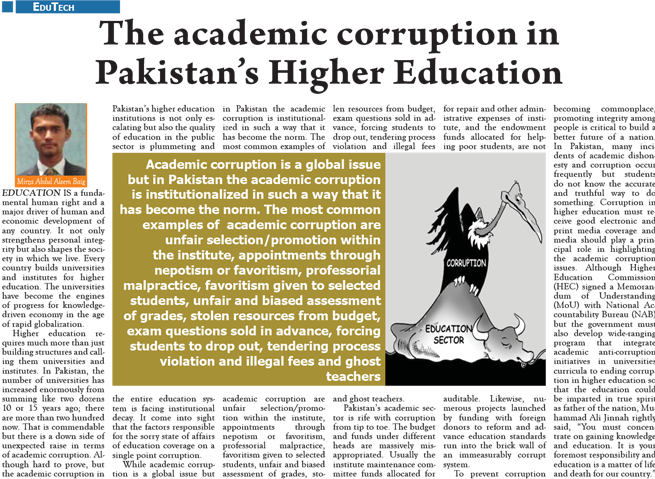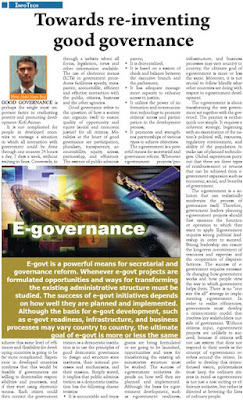EDUCATION IS a fundamental human right and a major driver of human and economic development of any country. It not only strengthens personal integrity but also shapes the society in which we live. Every country builds universities and institutes for higher education. The universities have become the engines of progress for knowledge-driven economy in the age of rapid globalization.
Higher education requires much more than just building structures and calling them universities and institutes. In Pakistan, the number of universities has increased enormously from summing like two dozens 10 or 15 years ago; there are more than two hundred now. That is commendable but there is a down side of unexpected raise in terms of academic corruption. Although hard to prove, but the academic corruption in Pakistan’s higher education institutions is not only escalating but also the quality of education in the public sector is plummeting and the entire education system is facing institutional decay. It come into sight that the factors responsible for the sorry state of affairs of education coverage on a single point corruption.
While academic corruption is a global issue but in Pakistan the academic corruption is institutionalized in such a way that it has become the norm. The most common examples of academic corruption are unfair selection/promotion within the institute, appointments through nepotism or favoritism, professorial malpractice, favoritism given to selected students, unfair and biased assessment of grades, stolen resources from budget, exam questions sold in advance, forcing students to drop out, tendering process violation and illegal fees and ghost teachers.
Pakistan’s academic sector is rife with corruption from tip to toe. The budget and funds under different heads are massively misappropriated. Usually the institute maintenance committee funds allocated for for repair and other administrative expenses of institute, and the endowment funds allocated for helping poor students, are not auditable. Likewise, numerous projects launched by funding with foreign donors to reform and advance education standards run into the brick wall of an immeasurably corrupt system.
To prevent corruption becoming commonplace, promoting integrity among people is critical to build a better future of a nation. In Pakistan, many incidents of academic dishonesty and corruption occur frequently but students do not know the accurate and truthful way to do something. Corruption in higher education must receive good electronic and print media coverage and media should play a principal role in highlighting the academic corruption issues. Although Higher Education Commission (HEC) signed a Memorandum of Understanding (MoU) with National Accountability Bureau (NAB) but the government must also develop wide-ranging program that integrate academic anti-corruption initiatives in universities curricula to ending corruption in higher education so that the education could be imparted in true spirit as father of the nation, Muhammad Ali Jinnah rightly said, “You must concentrate on gaining knowledge and education. It is your foremost responsibility and education is a matter of life and death for our country.”







